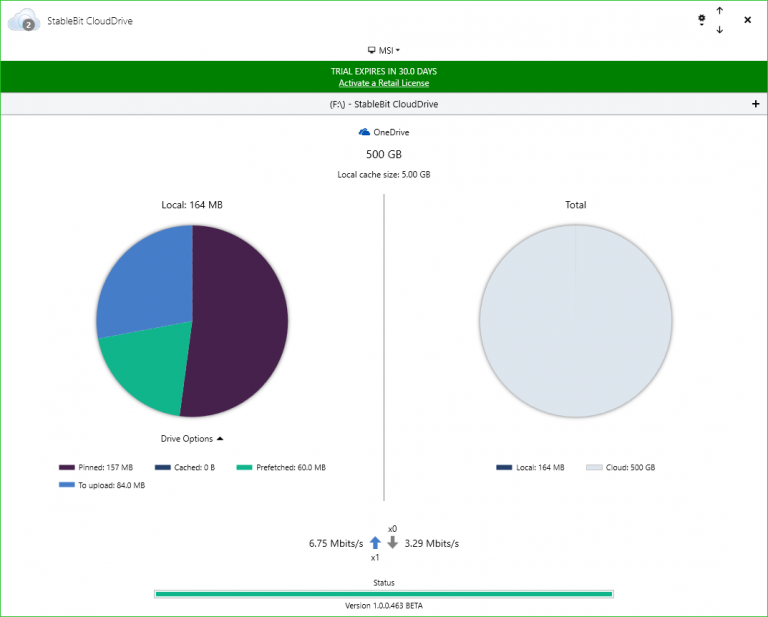StableBit CloudDrive is a secure virtual drive for your cloud storage accounts

StableBit CloudDrive beta ($34.95) is an interesting tool which creates a secure virtual drive on your PC, and stores the data on your choice of local, network or cloud storage.
The program currently supports Amazon S3, Box, Dropbox, Google Cloud Storage, Google Drive, Microsoft Azure, OneDrive and OneDrive for Business accounts.
Setup is reasonably easy. Choose a provider, log in, then click Create, optionally tweak a few settings and you’re done.
StableBit CloudDrive emulates a real SCSI hard drive, ensuring it shows up in Explorer -- and just about any other software you might install -- as another local drive.
One immediate advantage is that CloudDrive can protect your data with AES-256 encryption, keeping it safe from snoopers.
Performance is another major plus. This starts with a customizable local cache, which detects your most-used files and stores them on a local drive, for speedier access.
The cache can store NTFS data, too. Pin the drive indexes and you’re able to browse folder contents without having to download anything.
When you do have to download data, CloudDrive’s prefetching steps in. This looks out for sequential file access, such as media streaming, and downloads data you’re about to access before you need it.
Purchase the companion product DrivePool ($29.95 individually, $54.95 when purchased with CloudDrive) and you’re able to combine multiple local, network and cloud accounts into a single virtual drive.
Whether this suits your needs depends very much on your network and internet connection speeds, and your particular cloud storage account (some just aren’t designed to support this kind of heavy use).
We’re also a little nervous about the program still being a beta. This really isn’t an area where you want to run into any bugs, ever.
Fortunately CloudDrive has a fully functional 30-day trial version, so there’s plenty of time to test the product and see how well it works for you.
StableBit CloudDrive is supported on Windows Vista, 7, 8/ 8.1 and Server. Windows 10 isn’t on the list, but worked without issue during our tests.